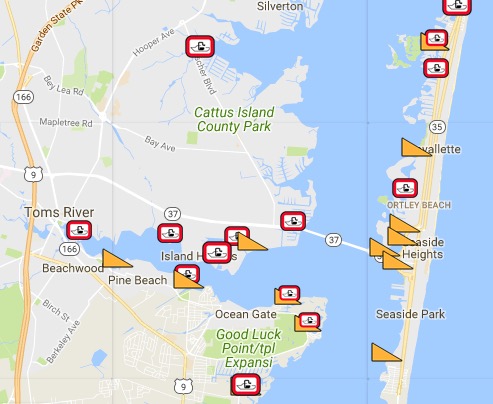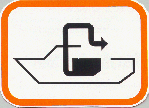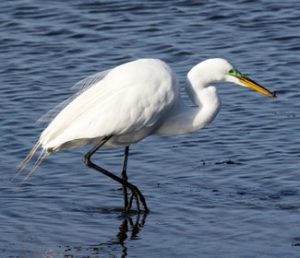Green Boating Tips and Ecologically Sensitive Areas
The New Jersey Department of Environmental Protection (DEP) has made addressing water craft impacts Item #10 in its Comprehensive Action Plan for Barnegat Bay. The DEP has identified sixteen ecologically sensitive areas in the bay. These areas are valuable because of the presence of submerged aquatic vegetation, nesting shore birds, diverse marine wildlife, and other key environmental factors. To learn more about green boating practices and to see a map of the ecologically sensitive areas, visit the DEP’s webpage for Action Item #10.

NJBoating.org is a comprehensive, easy-to-use, interactive website that links visitors to a wealth of New Jersey boating information. The site has extensive information to assist boaters, including how to find boat pumpout stations, locations and availability of public boat ramps, best boating practices, and state fishing regulations.
No Discharge Zone

The Barnegat Bay has been designated a NO DISCHARGE ZONE by the New Jersey Department of Environmental Protection (NJDEP). This means discharge of boat sewage, treated or untreated, is forbidden in the Barnegat Bay. The NO DISCHARGE ZONE is needed to reduce pollution from boat sewage in the bay. Sewage from boats can lower oxygen levels in the water, increase fecal bacteria counts, and increase algal blooms. Boat sewage should be pumped out responsibly at a marina pump-out station. Over 100 fixed pump-out stations have been installed at New Jersey Marinas. Please visit NJBoating.org to learn more.
Ocean County Pumpout Boats — a FREE service for boaters in Barnegat Bay!
Boaters in Barnegat Bay can also utilize the four FREE Pumpout Boats to discharge boat sewage. The Ocean County Pumpout Boats operate throughout the Barnegat Bay and Little Egg Harbor Bay, typically Friday through Monday from Memorial Day through the end of September.
Ocean County Pumpout Boats can be contacted on the marine VHF radio channel 9 by identifying the boat, its location, and service requested. The pumpout boat service is made available by the Ocean County Board of County Commissioners, the Ocean County Prosecuter’s Office, and the Ocean County Utilities Authority. For more information, visit the Ocean County Department of Planning’s Pumpout Boat Program webpage or call (732) 929-2054.
Clean Marina Program
The New Jersey Clean Marina Program is a voluntary education program that provides information, guidance, and assistance to marina operators, recreational boaters, and local government regarding the most effective best management practices to protect water quality and coastal resources. The Clean Marina Program recommends the following tips for boaters to keep their boating experience on Barnegat Bay safe, clean, and fun:
- Prevent spills during fueling by not over filing the tank, using pads or vent attachments to capture spills, installing a fuel-air separator, listening to the fill pipe and not relying on the guage.
- Keep your engine leak-free and well-tuned to minimize discharge of fuel and oil into the water.
- Use an oil absorbant pad or pillow in the bilge to absorb oil as needed.
- Use biodegradable, environmentally safe detergents to clean your boat.
- Use pumpout stations to dispose of waste (see above)
- Properly dispose of scrap fishing line, garbage, cigarette butts, and items for recycling ashore.
- Don’t rev it up near shore: shallow waters are vital breeding grounds for estuarine life.
- Seagrasses are nursery grounds for many fish — stay away from shorelines and shallows where there is underwater vegetation and where your boat’s wake could erode the shoreline.
Reporting Oil Spills
To give people the training and tools they need to enhance New Jersey’s response to oil spills, the American Littoral Society (ALS) launched a SpillSpotters Network in spring 2012. ALS is training a network of citizen volunteers to identify and monitor our coastal natural resources and assist in oil spill response. Citizens can play a key role in an oil spill response. People who are enjoying the coast – boaters, kayakers, fishermen, birders, beachcombers, and hikers – are often the first to observe a change in conditions.
Marine Defenders is a website for mariners, boaters, environmentalists, and students looking to learn about oil pollution. The website provides information about the impact of oil on marine mammals and coastal ecology, how to identify and report oil spills, and the laws regarding oil pollution. There is a 23-minute documentary called “Oil in Our Waters”, by Micah Fink, an Emmy nominated filmmaker, which offers a close look at oil pollution from ships and its impact on marine life. This site also contains lesson plans for high school and college biology and ecology classes, in-depth reports about the biological effects of oil on marine life, as well as a breakdown of the federal reward program for whistle blowers.
Marine Defenders has also created a mobile app that allows boaters, fishermen, and concerned citizen-scientists to report oil spills and marine debris. The oil spill reports are sent along to the National Response Center and the Coast Guard. The Marine Defenders app is available for iPhone and iPad for free from the iTunes store.

